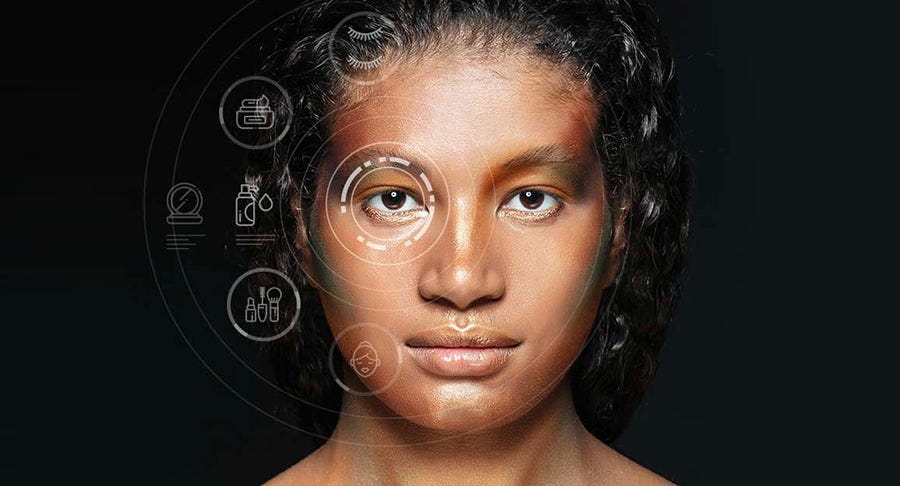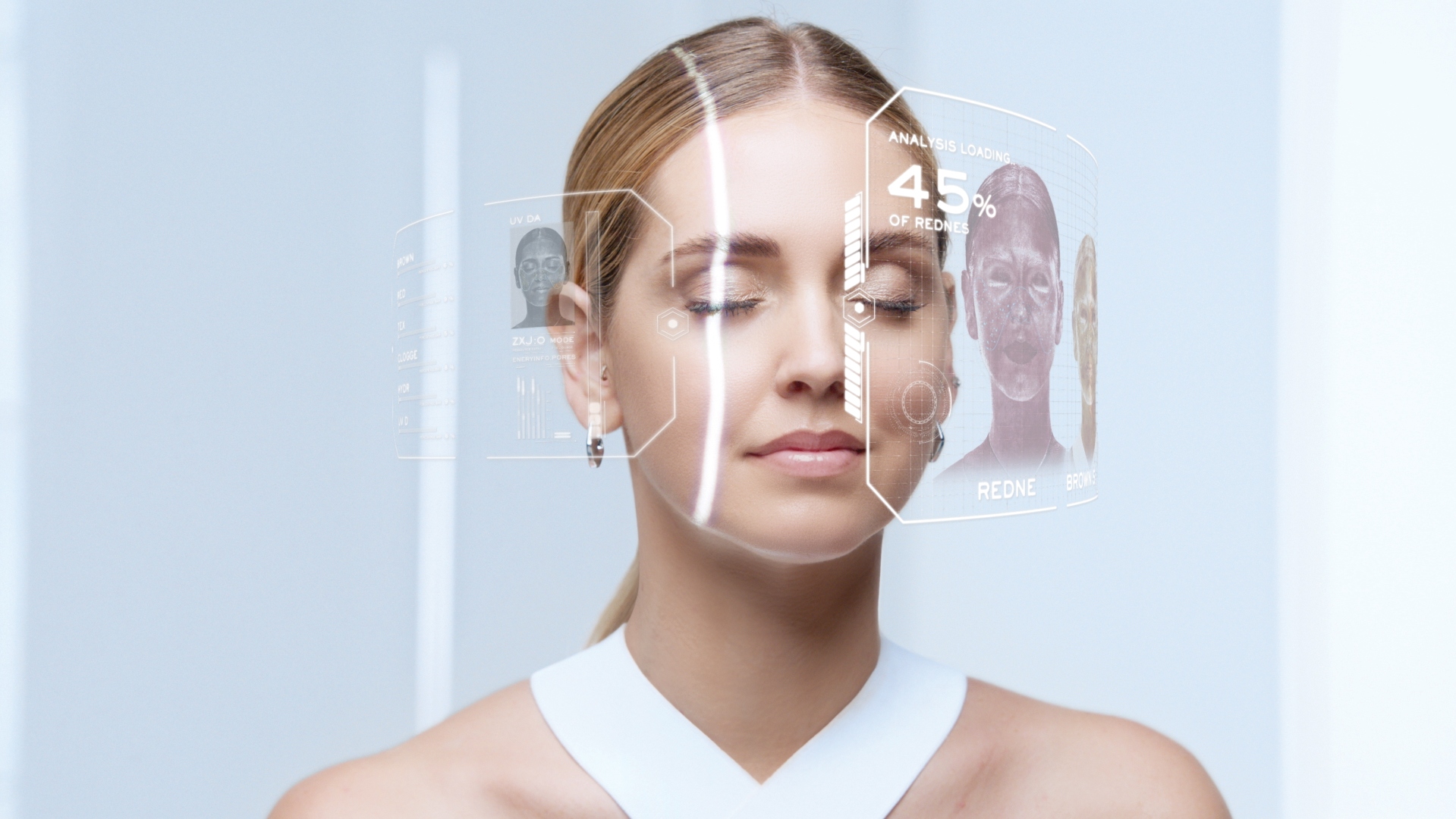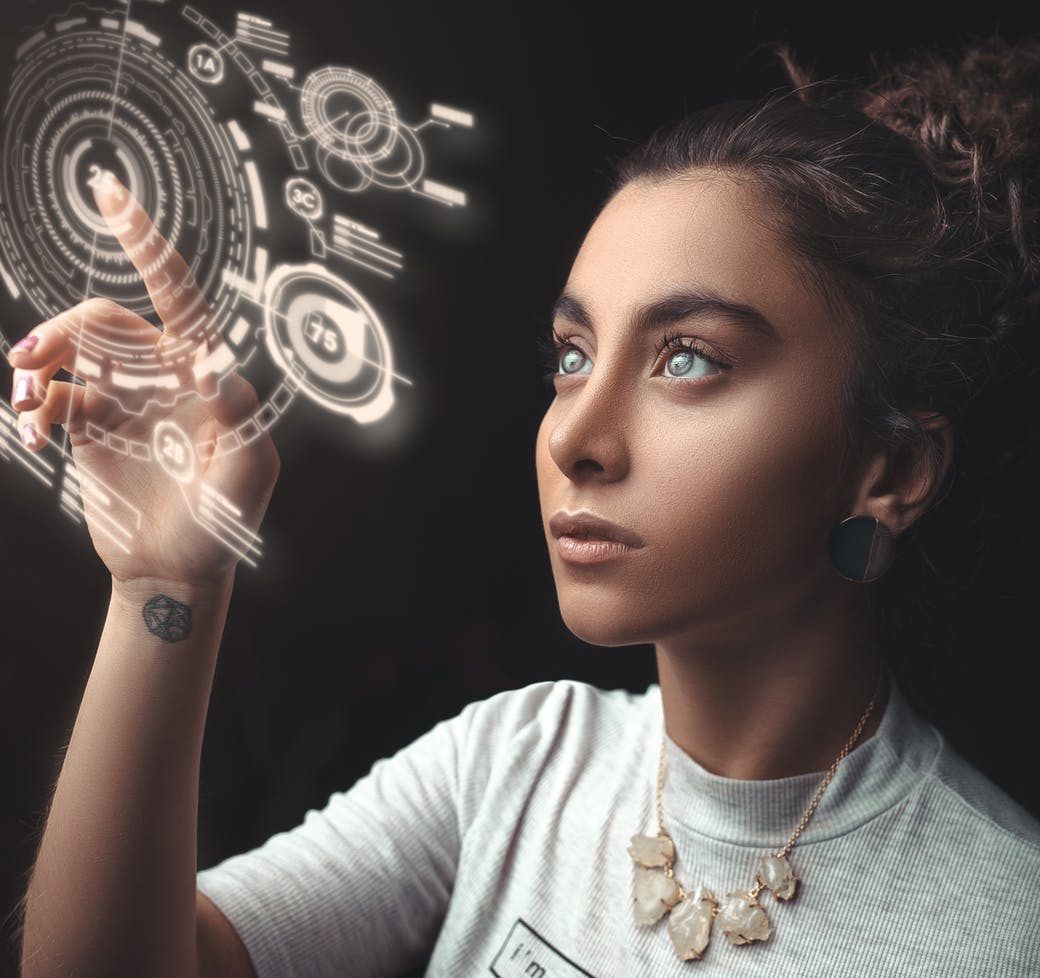Future Of Beauty Technology - 6 Cutting-Edge Advances Redefining Beauty Standards
Explore the future of beauty technology. Discover innovations shaping personalized skincare and makeup experiences.
Author:James PierceReviewer:Karan EmeryMar 04, 2024228 Shares11.3K Views

The future of beauty technologypromises revolutionary advancements. It will transform the way we approach skincare, makeup, and personal grooming. With cutting-edge innovations in areas such as artificial intelligence (AI), augmented reality (AR), biotechnology, and wearable devices, the beauty industry is poised for a significant evolution.
In this article, we'll explore some of the most exciting developments shaping the future of beauty technology and their potential impact on consumers.
Artificial Intelligence (AI) In Skincare
AI-powered skincare devices and apps are revolutionizing how consumers address their skincare concerns. These intelligent tools analyze factors such as skin type, environmental conditions, and lifestyle habits to provide personalized product recommendations and skincare routines. By leveraging machine learning algorithms, AI technology continuously learns and adapts to individual skin needs, offering tailored solutions for optimal results.
The use of AI to analyze skin is a quickly expanding trend in skincare and makeup. This technique uses AI algorithms to look at various parts of a person's skin. Smartphones and real-time live camera modes allow users to take pictures of their skin, which the AI system then analyzes to determine the types of skin, the presence of acne, dark spots, wrinkles, and pores. Customers receive customized skincare recommendations based on these findings.
For instance, Perfect Pro's skin diagnostic technology examines the front, left, and right profiles of a person's face to identify problems like wrinkles and acne. This exact technique guarantees thorough coverage, especially in difficult to reach places like the chin and cheeks.
These latest trends emphasize AI-based lip care in addition to skincare. The Lipcure Beam from Amorepacific, a lip device that not only diagnoses lip issues but also provides therapy and better lip care, won the top spot in the Digital Health category at CES 2024, demonstrating the quick rise of artificial intelligence in the skincare and cosmetics sector.
Wearable Beauty Devices
Wearable beauty technology encompasses a range of devices designed to enhance beauty and wellness on the go. From smart hairbrushes that analyze hair health and provide personalized recommendations to wearable UV sensors that monitor sun exposure and alert users to reapply sunscreen, these innovative gadgets seamlessly integrate into daily life, empowering users to take control of their beauty and skincare routines.
Smartwatches and fitness bands are examples of wearable technology that has become increasingly popular in the cosmetics business. Numerous health parameters, such as heart rate, sleep patterns, skin damage, mood swings, and exercise levels, are measured by these devices. Monitoring these indicators enables people to make well-informed decisions about their general health, which can also enhance their overall attractiveness.
The Evie Ring, one such wearable cosmetic device, took home an invention award at CES 2024. This smart ring takes into account various aspects of women's health, including hormone swings, menstrual health, and energy levels.
Smart sensor-equipped wearable UV trackers are also growing in popularity. The Shade UV tracker, for instance, tracks UV radiation exposure and offers real-time advice on sun protection. These trackers, which may be worn as a bracelet or fastened to clothing, connect to an app to provide individualized product recommendations for sunscreen and other safety precautions.
Automatic Hair Analysis
The newest beauty tech trend is hair analysis done automatically. Artificial intelligence (AI)-driven solutions provide individualized insights for customized hair care regimens by utilizing sophisticated algorithms and sensors to evaluate hair quality and scalp problems.
At CES 2023, companies like MYAVANA unveiled their hair strand analysis technologies. AI-driven hair analysis and customized recommendations are offered by this technology. With just a selfie from the client, Revieve, an AI hair care advisor, can accurately determine the state of the client's hair and provide interactive instruction and advice.
3D-printed Makeup
In the beauty industry, 3D-printed makeup is becoming more and more popular since it allows for greater personalization and innovation. The Mink 3D cosmetics printer, which enables users to convert any image into wearable makeup, is one noteworthy example. The printer produces instantaneously wearable powder cosmetics by smearing ink onto a substrate that has been coated in powder.
The industry's interest in 3D-printed makeup has increased, encouraging other businesses to explore related concepts. A 3D cosmetic pen, for instance, was unveiled by Adorn, a startup, which scans a person's face to determine the perfect foundation shade for their skin tone.
Virtual Makeup Filters
The idea of "virtual makeup," or "e-makeup," is to use virtual cosmetic filters to enhance a person's facial appearance in photographs. On social media sites like Instagram and Snapchat, where digital makeup artists create elaborate cosmetic filters for their followers to enhance their photographs, these filters are among the most sought-after features.
For example, Sephora lets users test out a variety of augmented reality filters on social media platforms. Using these filters, customers can also experiment with various cosmetic looks and colors and receive a virtual makeover that resembles one done by a qualified makeup expert.
Smart Mirrors
Technologically sophisticated mirrors that gather personal data to optimize daily beauty procedures and offer customers individualized insights are driving this beauty trend.
Wi-Fi connectivity allows for an interactive experience; key features include voice-activated controls, microscopic skin inspection utilizing embedded cameras and sensors, and customizable illumination based on individual needs. The requested merchandise is superimposed in real time on the customer's reflection by the embedded cameras using augmented reality technology.
Smart mirrors can be used by customers for many different purposes, such as skin analysis, outfit or beauty product previewing, tracking changes in complexion, evaluating the efficacy of products, and obtaining AI-driven personalized suggestions.
Smart mirrors enable users to try on makeup goods as part of a full look or precisely where the product is intended, in contrast to traditional product testers who usually apply the product on one side of their hand. For example, the CES 2024 innovation award-winning Mirart AI mirror can forecast an individual's perfect appearance.
Future Of Beauty Technology - FAQs
What Is The Future Of Beauty Technology?
The future of beauty technology encompasses advancements in AI, AR, biotechnology, and wearable devices, offering personalized solutions for skincare, makeup, and grooming needs.
What Is The Future Of Beauty Industry?
Despite changes brought on by the pandemic in recent years, market research indicates that by 2027, the beauty and personal care sectors would generate more than $101 billion in revenue. The business has responded swiftly to customer expectations as the definition of beauty keeps changing.
How Technology Is Changing The Beauty Industry?
It opened the door for beauty augmented reality (AR), which is the area where virtual and physical worlds collide. These days, artificial intelligence (AI) and similar technologies are powering new tools, applications, and even handheld gadgets that allow us to customize our bathroom beauty experiences.
What Is The Future Of Work In Beauty Industry?
It is anticipated that the sector would keep expanding, reaching a projected global market value of more than $800 billion by 2025. Aspiring beauty professionals will therefore have many options, ranging from skincare experts and beauty bloggers to hairstylists and makeup artists.
What Are The Beauty Technology Trends?
AI-powered skincare solutions use cutting-edge algorithms and machine learning to provide accurate, customized suggestions based on each user's unique needs. These technologies give precise diagnosis and treatment recommendations by analyzing large amounts of data, including skin type and concerns.
Conclusion
The future of beauty technology is marked by innovation, personalization, and sustainability. As advancements in AI, AR, biotechnology, and wearable devices continue to reshape the beauty landscape, consumers can expect more personalized, effective, and eco-friendly solutions that empower them to achieve their skincare and beauty goals with confidence and ease.

James Pierce
Author

Karan Emery
Reviewer
Latest Articles
Popular Articles

